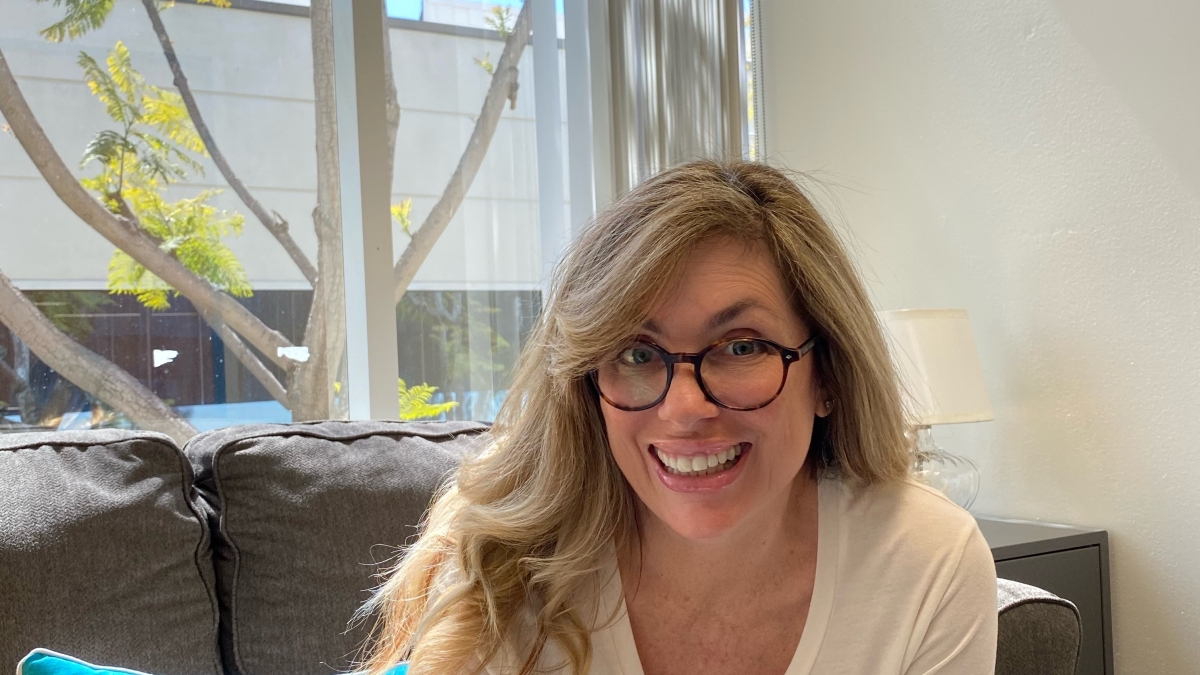Written off as a kid, ASU health solutions alumna now writes her own story

Wendy Boring-Bray
Wendy Boring-Bray was all of 16 when she got kicked out of high school. A tumultuous home life had the teen acting up long before the day an angry school counselor told her, “You will never become anything.”
“I’ll never forget what that counselor told me,” Boring-Bray recalled.
What was her teenage reaction? “I said, ‘challenge accepted.’”
Today, Boring-Bray has a Doctor of Behavioral Health (clinical) degree from Arizona State University’s College of Health Solutions and a thriving practice in California.
“I was not the traditional student at ASU,” Boring-Bray said.
In fact, she wasn’t the traditional student anywhere, because along with getting expelled from school, she was also kicked out of her childhood home.
“This is what led me to become a therapist,” she said.
After leaving home, Boring-Bray lived with a friend whose mother enrolled her in a trade school to be a front-office medical assistant.
“I’d work all week and go to school on Saturday,” she said. “I learned how to pay rent, how to keep my head above water.”
To remain afloat, Boring-Bray stayed on the medical track, working in many roles. She became a phlebotomist and longed to become a medical doctor.
An early marriage at age 20 and the subsequent birth of her daughter at age 23 took Boring-Bray away from her studies briefly, but she was back to school via online learning by age 25. She earned the degree and credentials to go into marriage and family therapy, and she never quit learning, eventually turning to the field of behavioral health.
“The Doctor of Behavioral Health program was a perfect merge of my therapy skills and my medical background,” Boring-Bray said.
How does her practice work?
Behavioral health takes an integrated approach to health care, something Boring-Bray explained using some of the veterans she sees as an example.
“I’m working with anger issues, post-traumatic stress disorder, hypertension, anxiety and depression. Those mental health conditions can exacerbate things like hypertension,” she said.
Boring-Bray has case managers working with her to help the vets navigate the VA and their physical conditions while she addresses the mental health of her patients.
“With an integrated system like the one at our clinic, we’re hitting medical needs, mental health and case management all at once. We have all that in-house,” she said.
Boring-Bray adds that this approach is just now taking off, a newer, innovative player in the medical arena. It’s a good thing she didn’t believe it when she heard she’d “never become anything.”
Now, she’s using her degree to help create new paths to holistic wellness.
Boring-Bray spoke recently about her ASU experience and her views on health care.
Question: How are you impacting health for both individuals and your community?
Answer: You can't improve the health of your community without improving the health of the individuals in it. Integrated health care takes the approach of helping the individual look at their lives as a whole, not just a mental or physical ailment that is currently impacting them. A doctor of behavioral health will look at the individual's lifestyle, medical history, mental health history and how motivated the person is to make changes to make the ailment better. By helping individuals make lifestyle changes like eating healthier, we can help patients be able to give back to their communities in different ways, such as coaching little league or other volunteering. This helps build strong communities.
Q: What did you learn at ASU that helped prepare you for your career or for the next step in your career journey?
A: Like so many others, I was brought up in the medical community believing that there was only one form of health care — siloed health care, where individual providers are housed in their separate practices and are not communicating with other providers. ASU taught me that health care can look vastly different, and the evidence shows that when providers work together to treat the entire patient, not just the symptomatology, magic can and does happen. Patients are more apt to receive better care and have more positive results when providers work collaboratively in a health care setting.
Q: What advice do you have for others wanting to make a difference in health?
A: First and foremost, never give up! I knew that I would be a doctor one day, but it looks very different than I imagined it would. Health care is a vast field with a niche for almost everyone. Even if an individual is not interested in direct patient contact, there is a need for people in administration, technology, human relations, marketing — almost everything — because health care is a community all its own. Never doubt that you can make a difference!
More Health and medicine

Making medicine side-effect free
Many drugs that address medical conditions can come with serious side effects. In drug commercials, the litany of potential side…

Diagnostic research happening at ASU focused on detecting diseases earlier to save lives
It was one of America’s founding fathers, Benjamin Franklin, who may have foreshadowed today’s health care innovation when he…

Fighting the fungus among us
It starts with a spore.When inhaled, spores of the coccidioides fungus can cause coccidioidomycosis — better known as valley…

